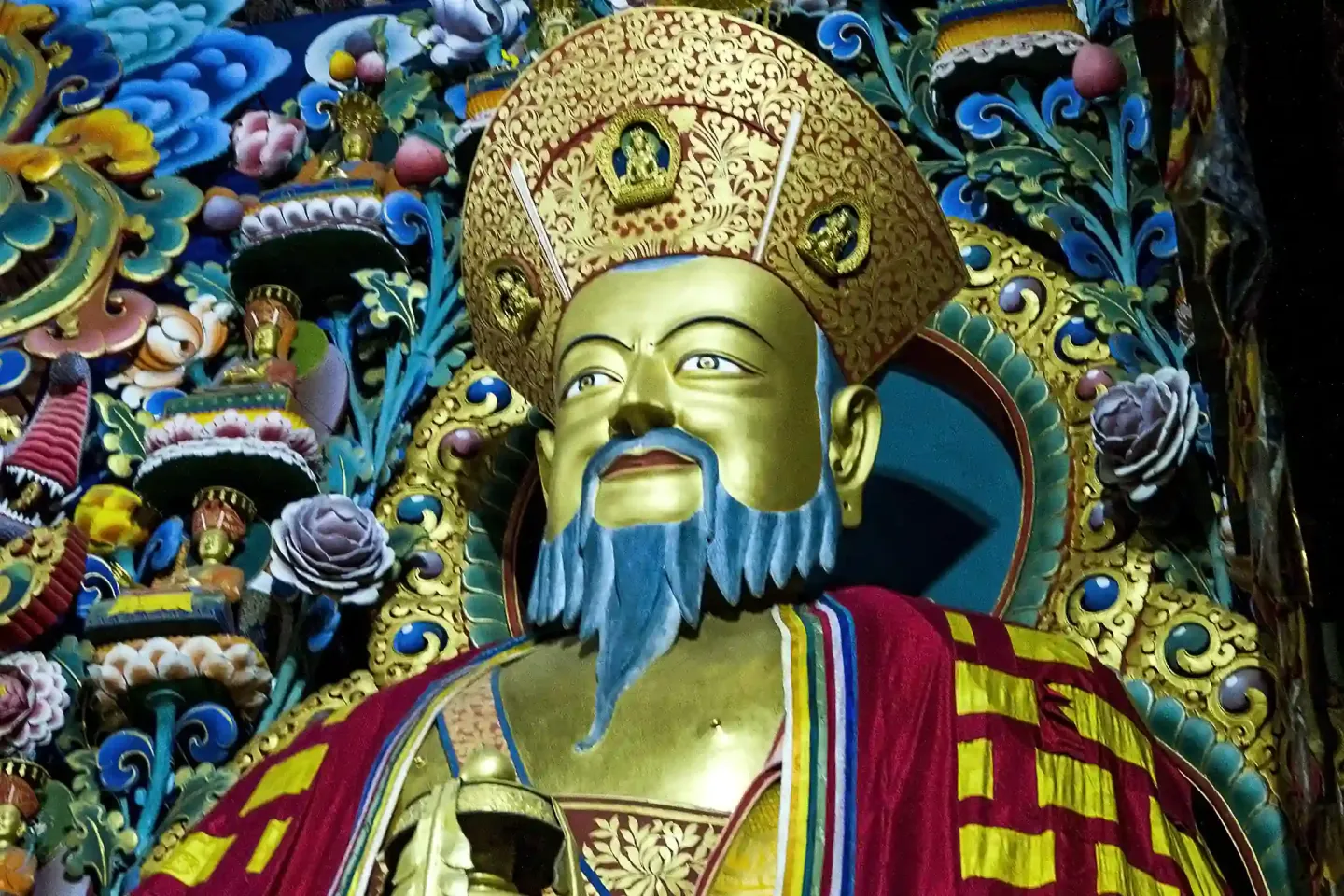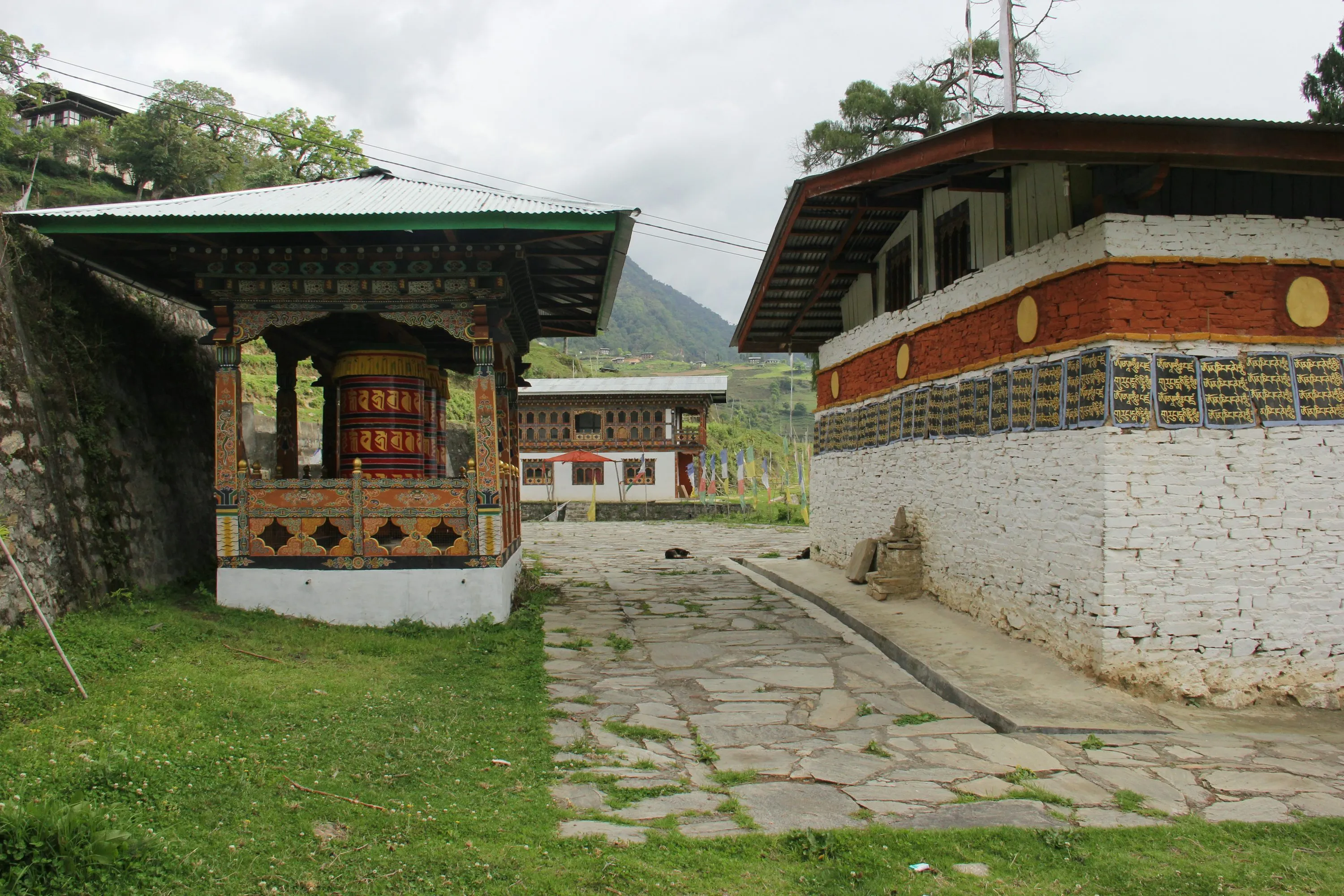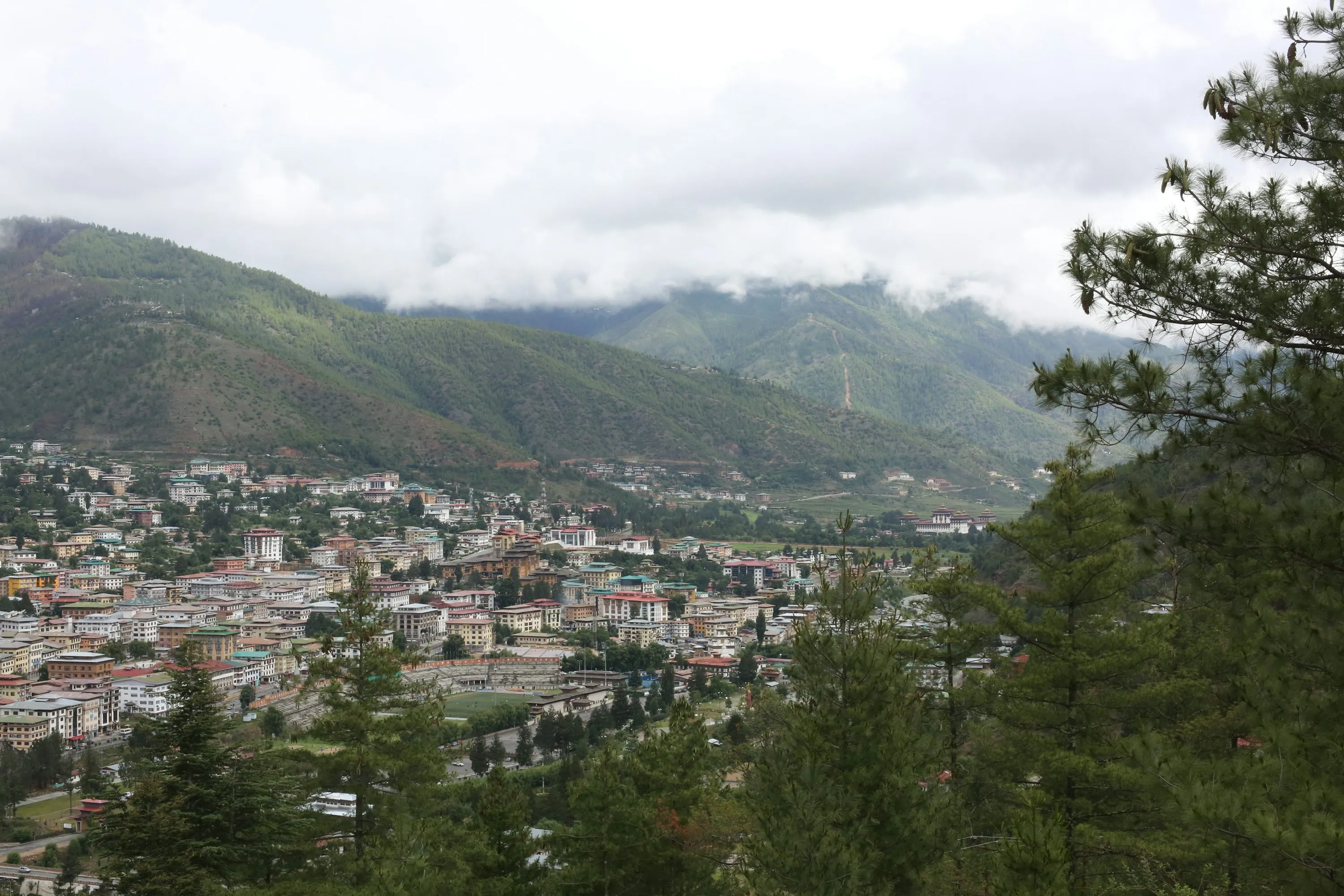Bhutan, nestled in the eastern Himalayas, offers Lebanese travelers a profound escape into a world where ancient traditions harmonize with pristine natural beauty, creating an experience that feels both timeless and transformative. Unlike the bustling urban landscapes and Mediterranean coastlines of Lebanon, Bhutan is a landlocked kingdom characterized by towering mountains, lush valleys, and fortified monasteries that dot the rugged terrain, much like Lebanon's own mountainous regions such as the Qadisha Valley or Mount Lebanon. However, while Lebanon boasts a rich history of Phoenician heritage, diverse religious communities, and a vibrant culinary scene influenced by Arab, Ottoman, and French elements, Bhutan is deeply rooted in Vajrayana Buddhism, with its culture emphasizing environmental conservation, spiritual well-being, and communal harmony under the philosophy of Gross National Happiness. Diplomatic relations between Lebanon and Bhutan are not extensively formalized, with no direct embassies in each other's capitals, but both nations engage through multilateral forums like the United Nations, sharing common interests in peace-building and cultural preservation amid geopolitical challenges—Lebanon navigating regional conflicts and Bhutan maintaining neutrality in South Asian affairs. For Lebanese visitors, accustomed to the fast-paced life of Beirut with its nightlife and cosmopolitan vibe, Bhutan presents a stark yet compelling contrast: a slower rhythm where happiness is measured not by material wealth but by sustainable living and inner peace. This guide, crafted as if by an experienced Bhutanese travel consultant, aims to equip you with a thorough understanding of practicalities and nuances, ensuring your journey is respectful, enriching, and memorable, far beyond the superficial allure of typical tourism.
Visa and Entry Requirements
Bhutan's tourism is governed by a controlled policy designed to preserve its cultural integrity and environment, mandating that all foreign visitors, including those from Lebanon, must book their trips through licensed Bhutanese tour operators. This system ensures high-quality, low-impact travel, where the operator handles most logistics, including visa processing. For Lebanese tourists, a visa is required and is issued upon arrival at Paro International Airport or designated land borders, but only after pre-approval. The process begins with your chosen tour operator submitting your passport details—ensuring it is valid for at least six months from the date of entry—along with a scanned copy of the passport's photo page, to the Tourism Council of Bhutan. No additional documents like invitation letters or proof of funds are typically needed beyond the booking confirmation, as the visa is tied directly to your tour itinerary. Payment for the tour, which includes the Sustainable Development Fee (SDF), must be wired in advance to secure visa approval; this fee, currently set at USD 100 per person per night as of 2025, funds free education, healthcare, and environmental initiatives for Bhutanese citizens, effectively making your visit a contribution to the nation's welfare. This SDF impacts overall pricing by adding a structured cost that covers accommodations, meals, transport, and guides, but it also limits mass tourism, ensuring uncrowded experiences. Once approved, you'll receive a visa clearance letter via email, which you present upon arrival for the visa stamp, valid for the duration of your tour. Extensions are possible but require operator assistance and additional SDF payments, emphasizing Bhutan's commitment to managed visitor flows.
Travel Routes from Lebanon to Bhutan
Traveling from Lebanon to Bhutan involves careful planning due to the absence of direct flights, requiring transits through major hubs, but the journey itself builds anticipation for the Himalayan adventure ahead. From Beirut-Rafic Hariri International Airport (BEY), the primary gateway for Lebanese travelers, common routes connect via Middle Eastern or Asian airlines to Paro International Airport (PBH), Bhutan's sole international airport. Popular itineraries include flying with carriers like Flydubai or Emirates to Dubai, then transferring to Druk Air (Bhutan's national airline) or Bhutan Airlines for the final leg from Delhi, Bangkok, or Kathmandu—key transit points where these Bhutanese carriers operate. For instance, a typical route might involve a Middle East Airlines or Qatar Airways flight from Beirut to Doha or Dubai, followed by a connection to Delhi, and then a short Druk Air hop to Paro, totaling around 10-15 hours with layovers. Druk Air and Bhutan Airlines are the only operators licensed to fly into Paro, known for its dramatic approach amid steep mountains, which demands skilled pilots and can lead to weather-related delays, especially during monsoon seasons when visibility is low. Realistic expectations include booking flights at least 2-3 months in advance through your tour operator, who coordinates seamlessly with the visa process, and preparing for potential schedule changes due to Paro's high-altitude location (over 7,000 feet) and short runway, which restricts operations to daylight hours and favorable conditions. While no direct flights exist from Lebanese cities like Tripoli or Sidon, Beirut serves as the hub, and land entries via India (Phuentsholing border) are possible but less common for first-time visitors, involving additional permits and road travel that can extend the journey by days.
Best Time to Visit and Seasonality
Bhutan's diverse topography creates varied seasonal experiences, influencing everything from weather patterns to cultural events, making strategic timing essential for Lebanese travelers unaccustomed to Himalayan climates. The kingdom features four distinct seasons: spring (March to May) brings mild temperatures averaging 10-20°C (50-68°F) in valleys, with blooming rhododendrons and clear skies ideal for trekking and sightseeing, though occasional showers can occur; summer (June to August) introduces the monsoon, with heavy rains up to 500mm monthly, leading to lush greenery but slippery roads, landslides, and flight disruptions, best avoided unless focusing on birdwatching in lower altitudes. Autumn (September to November) offers crisp, dry weather at 5-15°C (41-59°F), vibrant festivals like the Thimphu Tshechu with masked dances and communal celebrations, and fewer crowds post-monsoon, making it a peak period for cultural immersion. Winter (December to February) sees colder conditions, dropping to -5°C (23°F) in higher areas with possible snow, perfect for low-season tranquility and festivals like Punakha Dromche, but requiring warmer gear for outdoor activities. For Lebanese tourists, accustomed to Lebanon's Mediterranean mild winters and hot summers, autumn or spring are recommended for comfortable weather, optimal trekking in places like Tiger's Nest Monastery, and balanced crowd levels—avoiding the high-season influx while enjoying festivals that highlight Bhutan's spiritual heritage. Planning around these seasons affects itineraries, with operators adjusting for weather-dependent activities, ensuring a harmonious blend of nature and culture.
Money, Costs, and Payment Methods
Navigating finances in Bhutan requires understanding its currency system and the structured nature of tour costs, providing Lebanese travelers with a hassle-free yet mindful approach to spending. The official currency is the Bhutanese Ngultrum (BTN), pegged at par with the Indian Rupee (INR), which is widely accepted alongside it; exchange rates fluctuate but are generally favorable when converting USD, the preferred foreign currency for tourists. ATMs are available in major towns like Thimphu and Paro, accepting international Visa and Mastercard, but reliability can vary in remote areas, so carrying USD in small denominations for exchanges at banks or hotels is advisable—avoid large bills due to limited change. Credit cards are increasingly accepted in upscale hotels and shops, but cash remains king for smaller transactions, with no widespread use of mobile payments like those in Lebanon. Tour prices, mandated by the government, typically include accommodations in 3-star hotels or better, all meals (breakfast, lunch, dinner), private transport, English-speaking guides, and entry fees, averaging USD 250-300 per day inclusive of SDF, but extras like alcoholic beverages, tips (USD 10-15 per day for guides/drivers), personal shopping, or optional activities such as hot stone baths are out-of-pocket. For Lebanese visitors, budgeting an additional USD 50-100 daily covers these, while the all-inclusive model minimizes surprises, allowing focus on experiences rather than expenses.
Health, Safety, and Travel Insurance
Health and safety in Bhutan demand proactive preparation, particularly for Lebanese travelers transitioning from sea-level environments to high altitudes, where risks like altitude sickness loom but are manageable with awareness. Altitude sickness, or Acute Mountain Sickness (AMS), affects many at elevations above 2,500 meters (common in Bhutan), manifesting as headaches, nausea, or fatigue; prevention involves gradual acclimatization, hydration (3-4 liters daily), and avoiding alcohol initially. Medical facilities are basic outside Thimphu, with Jigme Dorji Wangchuck National Referral Hospital offering competent care, but evacuations may be needed for serious issues—hence, comprehensive travel insurance covering high-altitude activities and emergency helicopter rescues is essential, often required by tour operators. Recommended vaccinations include hepatitis A/B, typhoid, and tetanus, with rabies shots advised due to stray dogs; consult a travel clinic 4-6 weeks prior. Bhutan is remarkably safe, with low crime rates stemming from strong community values, though petty theft in tourist areas or risks from uneven terrain and wildlife exist—stick to guided paths and avoid solo night walks. Overall, the kingdom's peaceful ethos ensures a secure visit, but insurance provides peace of mind against unforeseen health or safety challenges.
Cultural Etiquette and Social Expectations
Bhutanese society thrives on respect, humility, and harmony, principles that Lebanese travelers, with their own emphasis on hospitality and family bonds, can appreciate while making minor adjustments to align with local norms. In temples and monasteries, remove shoes and hats, dress modestly covering shoulders and knees (long sleeves preferred), and walk clockwise around sacred structures as a sign of reverence—avoid pointing at deities or people, using your open palm instead. Social interactions value patience and soft-spoken communication; greet with "Kuzuzangpo la" (hello) and accept offerings like tea with both hands, refusing politely twice before accepting to show humility. Modesty extends to public behavior—no public displays of affection, and women should avoid touching monks. Lebanese cultural traits like expressive gestures might need toning down to fit Bhutan's understated demeanor, where boasting is frowned upon, and environmental respect, such as not littering, is paramount. Embracing these customs fosters deeper connections, turning your visit into a culturally enriching dialogue between two nations that cherish tradition amid modernity.
Connectivity, SIM Cards, Internet Access
Staying connected in Bhutan balances modern conveniences with the kingdom's remote charm, offering Lebanese travelers reliable options despite occasional limitations. Wi-Fi is available in most hotels and cafes in urban areas like Thimphu and Paro, often free but with varying speeds suitable for emails and browsing, though streaming may lag in rural spots due to infrastructure constraints. For mobile data, purchase a local SIM card from providers like B-Mobile (Bhutan Telecom) or TashiCell upon arrival at Paro Airport or town outlets; tourist SIMs cost around BTN 200-500, including data packages (e.g., 5GB for BTN 300), valid for 30 days—bring your passport for registration. These offer good coverage in valleys but spotty signals in mountains, ideal for navigation apps or calls. Lebanese apps like WhatsApp work fine, but some services might face restrictions; a VPN can bypass any blocks and enhance privacy. Overall, connectivity supports essential communication without detracting from Bhutan's serene disconnection from digital overload.
Language and Communication
Language barriers in Bhutan are minimal for tourism purposes, though Lebanese travelers with limited English may need strategies to bridge gaps rooted in the kingdom's linguistic diversity. Dzongkha is the official language, spoken alongside regional dialects, but English is the medium of instruction in schools and widely used in hospitality, government, and guides—most tour operators provide fluent English-speaking guides trained by the Tourism Council. Arabic-speaking guides are rare, as tourism caters primarily to English, Hindi, or Asian languages, but operators can arrange multilingual support if requested in advance. For those with basic English, simple phrases like "thank you" (kadinche la) or using gestures respectfully aid interactions; apps like Google Translate with offline Dzongkha support are useful. Communication emphasizes politeness and non-verbal cues, aligning with Bhutan's harmonious ethos, ensuring even limited language skills yield warm exchanges.
Packing and Preparation Advice
Packing for Bhutan requires versatility to handle its varying climates and activities, guiding Lebanese travelers from Mediterranean familiarity to Himalayan unpredictability. Layer clothing: lightweight breathable shirts for days (up to 25°C/77°F in valleys), warm fleeces or jackets for evenings (down to 0°C/32°F), and waterproof gear for rain—include modest attire like long pants and scarves for religious sites. Footwear should prioritize sturdy hiking boots for treks on uneven terrain, plus comfortable shoes for towns; pack wool socks, hats, and gloves for higher altitudes. Essentials include sunscreen, insect repellent, reusable water bottle (tap water unsafe; boil or purify), personal medications (including for altitude and stomach issues), and a first-aid kit. Power adapters for 230V outlets (types D/G) are needed, along with a portable charger for outages. Other items: binoculars for wildlife, journal for reflections, and eco-friendly toiletries—limit plastics to align with Bhutan's green policies. Prepare physically with light exercise weeks prior, and mentally by reading on GNH for cultural immersion.
Bhutan’s Unique Tourism Philosophy
Bhutan's tourism philosophy, anchored in Gross National Happiness (GNH), prioritizes holistic well-being over economic gain, shaping policies that Lebanese travelers will find refreshingly sustainable. GNH measures progress through psychological wellness, cultural preservation, environmental health, and good governance, leading to a "high-value, low-volume" model that caps visitor numbers via the SDF and mandatory tours. This cautious approach limits modernization—eschewing mass infrastructure for eco-friendly development—to protect biodiversity (72% forest cover) and traditions from overtourism's pitfalls seen elsewhere. For Lebanese, used to Lebanon's open tourism amid historical sites, Bhutan's strategy fosters quality interactions, ensuring your presence supports local communities without overwhelming them, embodying a deeper ethic where tourism enhances happiness for all.
Mindset and Expectations for Visitors
Adjusting expectations is key for Lebanese travelers entering Bhutan's serene world, where life's pace mirrors the gentle flow of its rivers rather than Beirut's vibrant energy. Embrace the slower rhythm: services may take time due to emphasis on mindfulness over efficiency, and infrastructure like winding roads or modest hotels (often family-run with basic amenities) prioritizes authenticity over luxury. Absent are high-end shopping malls or nightlife; instead, evenings unfold with stargazing or cultural shows. Focus on nature, spirituality, and community—hikes through ancient forests or monastery visits offer profound peace, contrasting Lebanon's social bustle. This mindset shift reveals Bhutan's charm in simplicity, rewarding patience with transformative insights.
Food and Dining Culture
Bhutanese cuisine reflects the kingdom's agrarian roots and Buddhist influences, offering Lebanese travelers spicy, comforting flavors that echo yet diverge from Levantine dishes. Staples include red rice, hearty and nutty, paired with ema datshi (chili-cheese stew), momos (dumplings filled with meat or vegetables), and phaksha paa (pork with radish)—meals are simple, cheese-heavy, and chili-infused for warmth in cool climates. Dining embodies hospitality: shared family-style, often on floors with low tables, where hosts offer seconds insistently; accept graciously after polite refusals. Tea (suja, buttery and salty) or ara (rice wine) punctuate meals, with alcohol moderate due to Buddhist precepts. Vegetarians thrive on datshi variations, while attitudes view food as sustenance and bonding, inviting adaptation from Lebanon's mezze-rich feasts.
Festivals, Religion, and Sacred Places
Religion permeates Bhutanese life through Vajrayana Buddhism, with festivals and sacred sites offering Lebanese travelers immersive glimpses into spiritual depth. Tshechus, annual monastery festivals, feature masked dances (chams) symbolizing good over evil, communal picnics, and blessings—attendees in traditional gho/kira attire create vibrant spectacles. At sacred places like Taktsang (Tiger's Nest), conduct rules include modest dress, silence, no eating/smoking, and clockwise circumambulation. These experiences foster understanding of karma, compassion, and impermanence, enriching visits with cultural resonance akin to Lebanon's religious festivals but uniquely Himalayan.
Hidden Challenges and Practical Inconveniences
Bhutan's allure includes embracing minor inconveniences as facets of its unspoiled character, preparing Lebanese travelers for realities that enhance authenticity. Winding mountain roads, prone to delays from weather or maintenance, demand patience during long drives; power outages, common in remote areas, add rustic charm to candlelit evenings. Itinerary changes may arise from festivals or conditions, while slow service reflects mindful living rather than inefficiency. Frame these as opportunities for reflection—part of Bhutan's charm lies in surrendering to its pace, turning potential frustrations into memorable stories.
Shopping and Souvenirs
Shopping in Bhutan focuses on artisanal treasures, differing from Lebanon's souks with an emphasis on authenticity over variety. Handwoven textiles like kira fabrics, bamboo crafts, incense, and thangka paintings dominate markets in Thimphu or Paro—seek government-certified shops for genuine items, avoiding imports. Bargaining is uncommon and subtle; fixed prices respect artisans' value. These souvenirs embody cultural heritage, making purchases meaningful mementos of Bhutan's craftsmanship.
Altitude Awareness and Physical Preparedness
Altitude in Bhutan varies from 150m to over 5,000m, necessitating awareness for Lebanese sea-level dwellers to prevent AMS symptoms like dizziness or shortness of breath. Acclimatize by starting in lower areas, hydrating extensively, eating light carbs, and ascending gradually—Diamox may help if prescribed. Physical prep includes cardio exercises weeks prior; adjust activities, resting as needed, ensuring safe enjoyment of treks and views.
Security, Safety, and Emergency Information
Bhutan's safety reputation holds firm, with low crime and welcoming locals, though practical advice ensures worry-free travels for Lebanese visitors. Respect laws against tobacco sales or defacing religious sites; emergencies dial 112 (ambulance), 113 (police), or 110 (fire). Lebanese embassy support via India (New Delhi), but tour guides handle most issues. Overall, vigilance on terrain suffices in this secure haven.
Photography and Drones
Photography in Bhutan captures its beauty respectfully, with rules prohibiting shots inside temples or of military sites—ask permission for people, especially monks. Drones are banned for tourists, requiring special permits rarely granted, to preserve privacy and safety. Adhere for harmonious visits.
What Bhutan Does Not Have
Bhutan's uniqueness stems from deliberate absences that preserve its essence: no skyscrapers mar the skyline, no fast-food chains like McDonald's disrupt local diets, no casinos tempt excess, and no mega-malls overshadow artisan markets. These omissions highlight Bhutan's charm in simplicity and sustainability.
Important Questions to Ask Before Booking a Tour
Before committing to a Bhutanese tour operator, Lebanese travelers should engage in thoughtful inquiries to ensure a tailored, seamless experience that aligns with personal preferences and needs. Start by asking about the guide's qualifications and experience—specifically, if they are certified by the Tourism Council, fluent in English, and knowledgeable about Lebanese cultural sensitivities to facilitate comfortable interactions. Inquire about itinerary flexibility: can adjustments be made for health concerns like altitude adaptation or to include specific interests such as extended festival visits or vegetarian meal options, given Bhutan's spicy cuisine? Discuss accommodations in detail—what star ratings are provided, are upgrades available for more comfort, and how do they handle power outages or Wi-Fi reliability? On food, probe whether dietary restrictions (e.g., halal preferences or allergies) are accommodated, and if local homestays for authentic experiences are an option. For emergencies, confirm their protocols: do they carry first-aid kits, have access to medical evacuations, and coordinate with insurance providers? Ask about SIM cards—will they assist in purchasing one upon arrival, and what data plans suit international calls back to Lebanon? Language support is crucial; verify if multilingual resources or translators are available if English proficiency is limited. Tipping customs should be clarified: what's the expected amount for guides and drivers, and is it included or separate? Finally, discuss insurance requirements—does the operator mandate coverage for high-altitude activities, and can they recommend policies? These questions, posed conversationally, build trust and customize your journey, turning potential uncertainties into assured adventures.
Conclusion
In reflection, Bhutan stands as a rare sanctuary for Lebanese travelers seeking respite from the world's frenetic pace, offering instead a tapestry of cultural depth, untouched natural splendor, and spiritual serenity that rejuvenates the soul. Far from commercialized destinations, its commitment to Gross National Happiness invites introspection and genuine connections, reminding us that true fulfillment lies in balance and mindfulness. As you return to Lebanon's dynamic shores, carry Bhutan's lessons of harmony, leaving footprints that honor its sacred lands.













